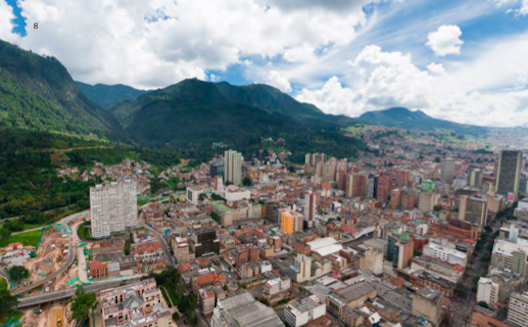3 ways to build a better city


Developing a world-class city often involves creating a healthy
entrepreneurial ecosystem. New studies from
McKinsey and the
National League of Cities both reveal ways in which local
leaders aren't waiting for national policies to change, instead
taking matters into their own hands to build cities with
sustainable models that will promote ongoing growth.
In addition to the
well-established role big companies can play in nurturing
startups, these studies isolate a few crucial ways that local city
leadership can work to grow the local ecosystem, which, in turn,
may attract entrepreneurs who improve the wealth, efficiency, and
quality of life in the city itself.
These studies lay out specific projects that demonstrate methods
for achieving these goals, that could, perhaps, be emulated in the
Arab world.
1. Create specialized incubation and tech zones to attract and challenge entrepreneurs.
Leaders in Boston and London have undertaken the development of zones – London’s Tech City and Boston’s Innovation District – especially reserved for entrepreneurs and small businesses. To attract businesses (and perhaps to stem the exodus of startups from nearby Boston and MIT to California’s Silicon Valley), Boston leaders launched MassChallenge, the world’s largest startup accelerator and competition, to “connect early stage entrepreneurs to the resources they need,” by offering them free office space, mentors, workshops, and networking events. The 110 companies that participated in 2010’s MassChallenge collectively raised over $90 million USD and created over 500 jobs in less than a year. Currently the Innovation District contributes over $10 billion USD to the city’s gross product.
British leaders similarly grew London’s Tech City from 15 companies in 2008 to over 5,000 in 2012 (according to an estimation by Wired magazine) by addressing its specific challenge (among others) of the lack of in-country specialized labor: British leaders introduced legislation to make it easier for skilled foreign workers to get visas, as well as “updating intellectual-property rights laws.”
2. Facilitate and reward the adoption of green technology
Many cities have basic requirements as to how eco-friendly a building or company should be, but it’s the support the local government gives entrepreneurs in greening their outfits that seems to most efficiently effect change.
Local leaders, primarily in the United States, are also using
the promise of green technology to help small businesses and
entrepreneurs save money, learn best practices of
environmental stewardship, and stay afloat in a recovering
national economy. City officials in Austin, Texas launched a pilot
program in 2011 called Austin Green Business Leaders (AGBL) that
began in earnest for the general business community in March 2012.
Benefits for small business owners extolled by the city include
“green credibility” to use in new, specially targeted marketing
campaigns, reduced expenditures on wasted water and energy, and the
opportunity to network with other businesses committed to
“greening” their operations.
Similarly, after realizing that commercial buildings consumed 80%
of the city’s electricity, leaders in Washington, DC put in place
building codes requiring all new construction projects to apply for
Leadership in Energy and Environmental Design (LEED) certification
(a standard for measuring a building’s sustainability). To
encourage small business and residential building owners to also
seek certification, Washington, DC also “offers rebates on retrofit
costs and expedites the permit application process.”
While increased environmental consideration or clearer channels of
communication in the Arab world might be a bit aspirational, a
final tactic for growing the entrepreneurial ecosystem perhaps has
more potential for implementation than the others, especially given
the presence of world-class universities such as the American
Universities of Beirut and Cairo:
3. Partner with universities to incubate and accelerate
startups
Scottsdale, Arizona’s partnership with Arizona State
University – ASU SkySong – brings elements from three separate
ecosystems: the university (including students, staff, alumni), the
startup (startups and their staff, angel and venture capitalists,
mentors), and the wider ecosystem (large companies, local
government, and international connections) in hopes of encouraging
students and members of the wider community to create business in
Scottsdale.
Special assistance is given to particularly promising startups
through the ASU Venture Catalyst program. Since the project started
in 2008, “48 spinout companies based on ASU intellectual property
have been established, eight ASU companies have been acquired or
merged, and there have been two IPOs.” Also, “the valuation of ASU
spinout companies and sub-licensees is estimated at over US $200
million."
That small businesses and entrepreneurs feed growth on the
regional, local, individual, and community levels is nothing new.
The only thing left to do is for leaders in the Arab world accept
the challenge.


